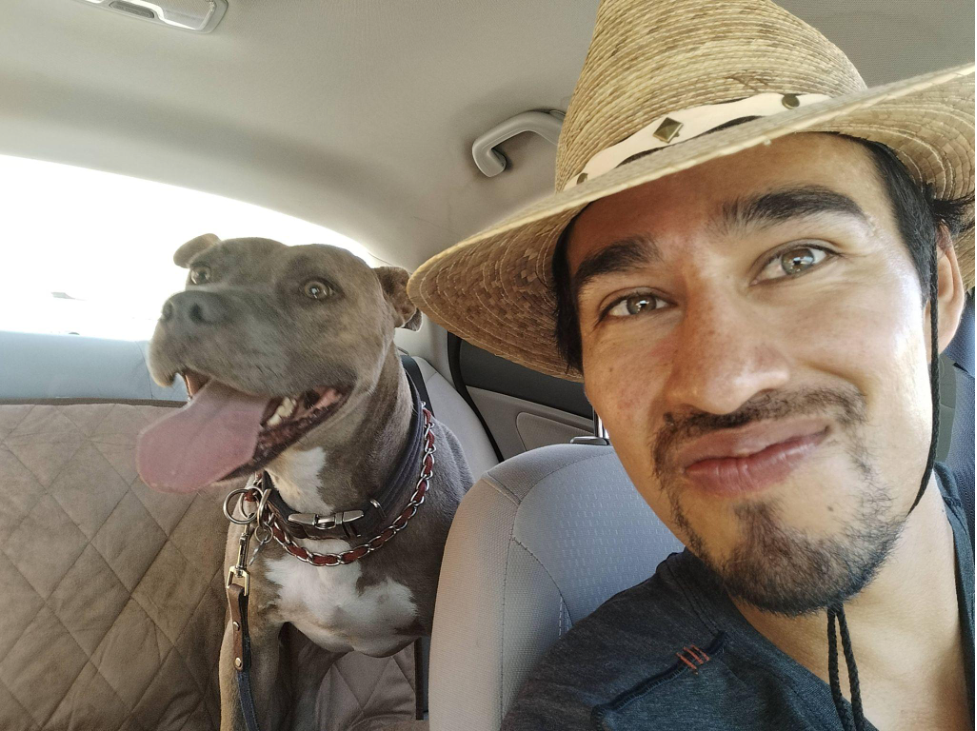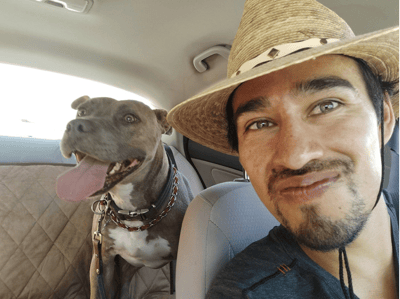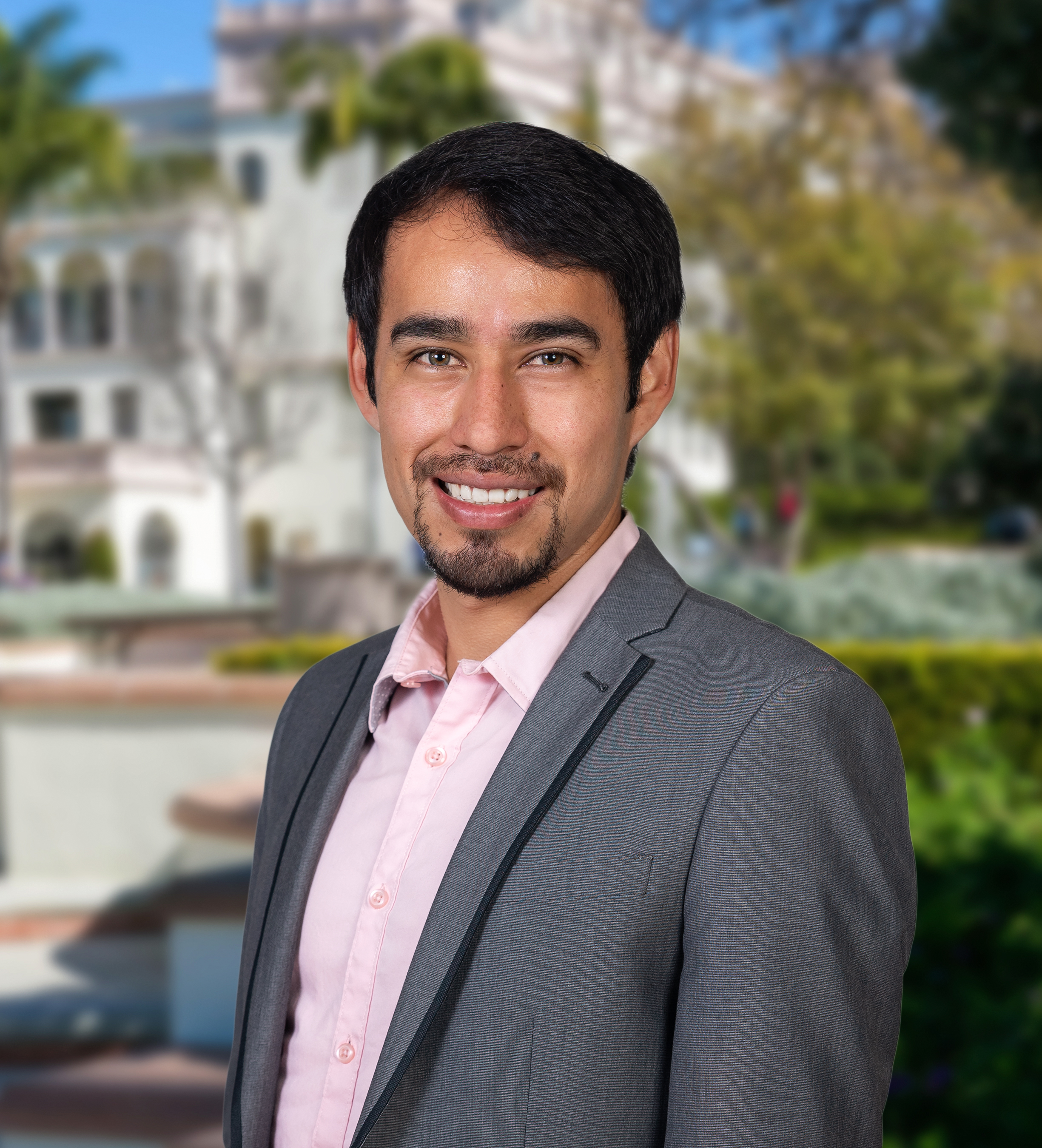MA Student Reflects on Cross-Border Initiatives Internship
Written By Fernando Franco Castro Escobar

Fernando Franco Castro Escobar, a current MA in Peace and Justice (MAPJ) student, recently completed a summer Cross-Border Initiatives internship at the Kroc Institute for Peace and Justice. Read on to learn more about his internship experience, in his own words.

What were your expectations before you started your internship?
I started my internship at a time of transition. The year before my internship, the Kroc Border Fellows program had no theme built into the call for applications. However, this year applicants were called to apply if their work fell into the theme of chronic violence. This transition came with some uncertainties and I wasn’t sure about what to expect.
For about a week or two, we didn’t receive any applications. Then, a week before the deadline, we had received 20-40 applications. I worried and wondered if I had done something wrong, or whether the call for applications was badly drafted, unclear, and unappealing. The year before my internship, in the absence of a theme, the program received more than 500 applications. This year, in the aftermath, we received more than 200 applications. Through this experience, I learned that people tend to send their applications very close to the end of established deadlines. After all, two hundred-ish was the perfect number: not too large, not too little. My internship exceeded all expectations.
What pushed you outside of your comfort zone during your internship?
A candidate had applied to be a Kroc Border Fellow for the second year in a row and was not selected again. The candidate expressed a sense of unfairness and questioned the judgment of the selection committee. Since I was the main point of contact, I had to attempt to de-escalate the situation. However, the candidate directly reached out to my supervisor and then my supervisor’s supervisor. The conflict ended there, but it definitely showed me how, even in a Peace and Justice institute, competition for resources—a grant in this case—can lead to conflict and upset people.
What was your greatest accomplishment and/or reward?
The third round of interviewing Kroc Border Fellow candidates was the most rewarding. Interview after interview, I could feel the quality of the applications was simply amazing. Having gone from the uncertainty of not receiving enough applications to a group of 16 incredible finalists, was a really good feeling.
My supervisor and I sat down to discuss each of our own selected finalists. If we had different people selected, we could discuss the reasons why one or the other should be selected. To our surprise, we selected the same people. This was very rewarding too because it felt like a confirmation of my own judgment and understanding of what we need at the border to make it a better place.
What knowledge from your academic coursework was most important for your internship? In what ways were you able to apply what you have learned in your academic coursework to your internship?
My Practicum in Immigration and Asylum enabled me to review the applications we received to the Kroc Border Fellows Program through U.S.-Mexico legal and historical lenses. As part of the same practicum, I was able to (1) see, touch, and walk along the border, (2) fundraise for a border-related NGO, and (3) participate in a border-related art installation at the Museum of Us. These activities were meaningful because, (1) I now have a lived experience of the border itself; (2) I am familiar with the challenges relating to funding and other obstacles that NGOs, activists, and changemakers may find in the border region; (3) and am aware of the impact that art initiatives and research can have on both sides of the border.
Were there any moments from your internship that shed light on power differentials or raised any questions for you about how you fit into the field?
I am a Mexican citizen and this facilitated all aspects of my work as an intern at Kroc IPJ Cross-Border Initiatives. Fluency in Spanish and having grown up in a Mexican family made me more relatable and aware of the difficulties faced by Mexico as a nation. However, I am not a fronterizo (border person). So, sometimes I was aware of my own distance to some of the realities lived in the Tijuana-San Diego region.
In relation to other forms of identity related to power, I represented the source of money for candidates. It was interesting to have to evaluate the applications of people who were more educated and experienced than me—people with PhDs, decades of experience working, and well connected agents of change.
What marketable skills did your internship help to cultivate?
Program Management: I co-directed the launch of a call for applications from beginning to end, learned team management, and email communication.
Monitoring and Evaluation: Planning and organizing budgets and proposed plans of impact measurement.
Marketing: Management of social media and engagement with applicants, staff, media, government, stakeholders, etc.
Media Production: I produced a video blog to communicate the work done at the office.
In light of your internship experience, how have your professional goals evolved?
I definitely became more interested in border issues. I gained a deeper understanding of the effects a border can have on nations all over the world, in terms of identity, bureaucracy, power dynamics, flow of products, services and people, and more. I also may be interested in a PhD in fields that I had not considered before, such as the epigenetic of violence.
Would you recommend this internship placement to another student? Why or why not?
Definitely. It is a great way to learn about Tijuana, San Diego, and the border region as a whole. The internship is a great opportunity to connect with the Kroc Border Fellows who are incredible people doing incredible things.
You will navigate the institutional challenges that working at a university may bring anywhere else in the world. For example, rules about using logotypes, language, specific platforms, communicating through emails, budget use, reserving parking spots (it sounds silly, I know), and more.
Ultimately, the Kroc IPJ Cross-Border Initiatives internship provides you with a safe space to grow as a leader. You have to come up with ways of evaluating applications and explaining why some are better than others, provide feedback concretely and effectively, and stay organized in the midst of hundreds of emails and documents.

About the Author
Fernando Franco Castro Escobar
Franco is a MA in Peace and Justice candidate at the Kroc School of Peace Studies.





